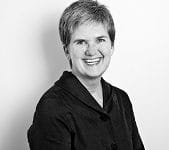Culture Change: Part of the “Improving DE&I for SMBs” Series
Written by Heather Bussing
June 4, 2021

If we are going to make progress with diversity, equity, and inclusion, we have to be willing to change on both personal and organizational levels.
It's easy to say, but complex and difficult to do. How do we change our perspectives, hearts, and minds in a system where opportunity favors some and everyone else faces barriers? Especially when those of us with power and resources don't have the same experiences as those of us who don't. Our perspectives on the issues are different because our realities are very different.
For most of us, we can't see our biases because it's just what we know. It's the way things are. It's certainly not perfect, but it's what we're used to and things are changing. Black people can own property instead of being property. Women can vote, have their own bank accounts, and run businesses now. We can marry the person we love, or not. And there are laws that protect many of us against discrimination.
The trouble is that there is progress on paper and progress in practice.
Many of us agree that all humans are equal and should have the same opportunities, but we can't or don't see the obstacles others face because it doesn't happen to us. (Those who don't agree are probably not reading this.) If we have privilege, it's normal to us. We did not create the problems; it's not our fault.
But if the way things work is fundamentally unfair and many of us continue to be discriminated against by well-meaning people who usually don't think we are doing it.
Sometimes we have to fix problems we did not cause because it's the right thing to do.
For those of us who experience discrimination every day, life comes with trauma. The invisibility, rejection, dismissal, fear, and hatred from people who don't even know us are continual and painful. When we experience bias and discrimination, we are forced to see and deal with it because it hurts. It feels unjust. It is unjust. Some of us are disadvantaged in our culture just because of who we are. We did not do anything or fail to do something that caused us to be treated that way except to be born who we are.
A friend told me about the moment it all clicked for him. He's a veteran, straight, white, and grew up in a very homogenous place. He was comfortable walking through the world, thought he knew what was normal, and usually ignored or rejected things that weren't.
One day, he met some of the people he served in the military with at the Veterans' Hall. In walked a tall woman who apprehensively joined their group. After a few sidelong glances and raised eyebrows, she introduced herself and explained that she served with them, but they knew her as a man.
My friend was stunned and really uncomfortable. He thought about getting up and leaving. Then he remembered their times together and how much he cared for this person. As he listened to her story, he realized how brave she was and how much courage it took for her to show up that day. "She just wanted to be herself," he explained.
We all just want to be ourselves, to be seen and accepted no matter what we look like, who we love, or what our spiritual practices.
This is really difficult when our whole culture is based on us v. them and everything is framed in adversarial and war metaphors. We have the war for talent, the war on drugs, and even the fight for equality. We are all chasing power and control. We think that if we can just be (fill in the blank) enough, we can change things and be happy. But discrimination is both a cause and a symptom. It is always an abuse of power, which is why we think having more power will solve it. But discrimination is also the result of a culture based on hierarchies, hoarding and control of resources, and self-interest. We have this myth of being rugged individualists. Rugged individualism doesn't scale, as we have discovered during a global pandemic and many and more frequent natural disasters.
We all are connected. We all deserve to be and to be treated fairly. If we start from a place of understanding and compassion instead of competition for power, we have a chance to make changes that will solve the problem of discrimination rather than perpetuate a system based on adversarial competition for power and resources.
At the heart of diversity, equity, and inclusion, is the freedom and opportunity to be ourselves.
Click here to read the previous blog in the series
Resources:
You’re Inclusion Strategy is Biased. Here’s What You Can Do About It., Forbes
Bias in the Workplace Today, Deloitte


Download our white paper to further understand how organizations across the country are using market data, internal analytics, and strategic communication to establish an equitable pay structure.
Insights You Need to Get It Right











